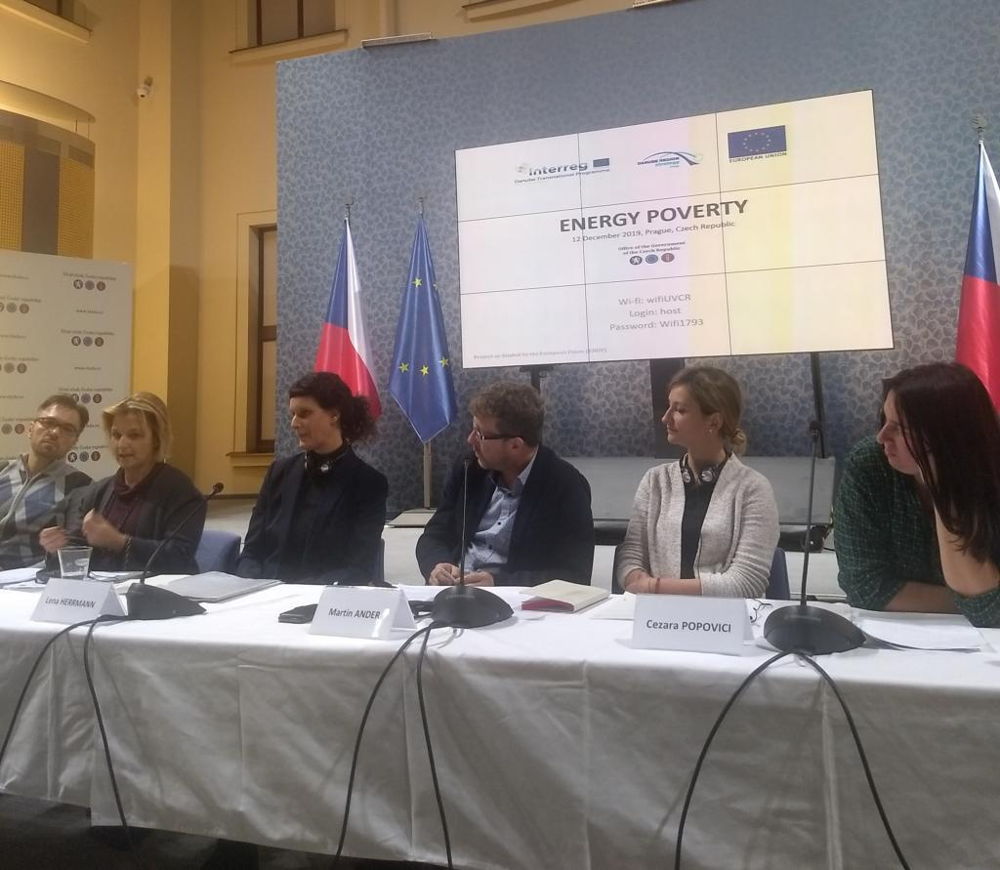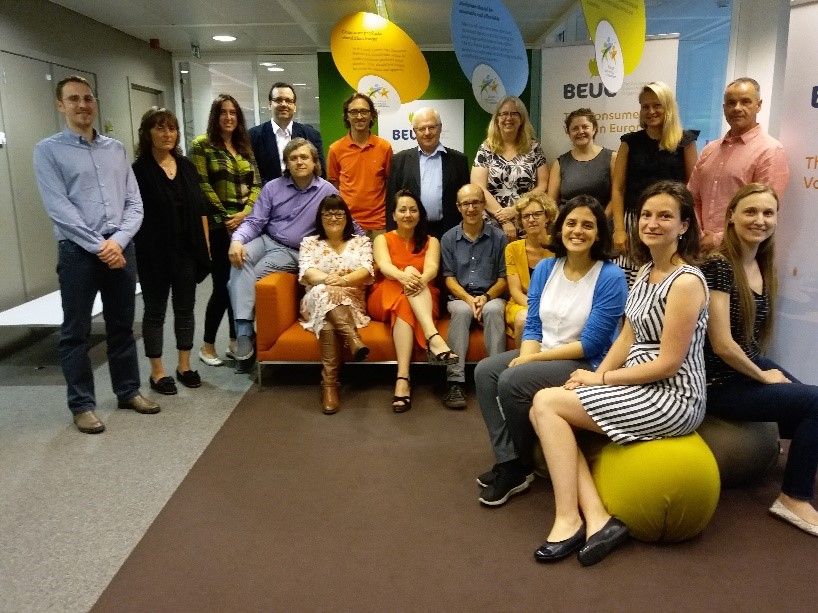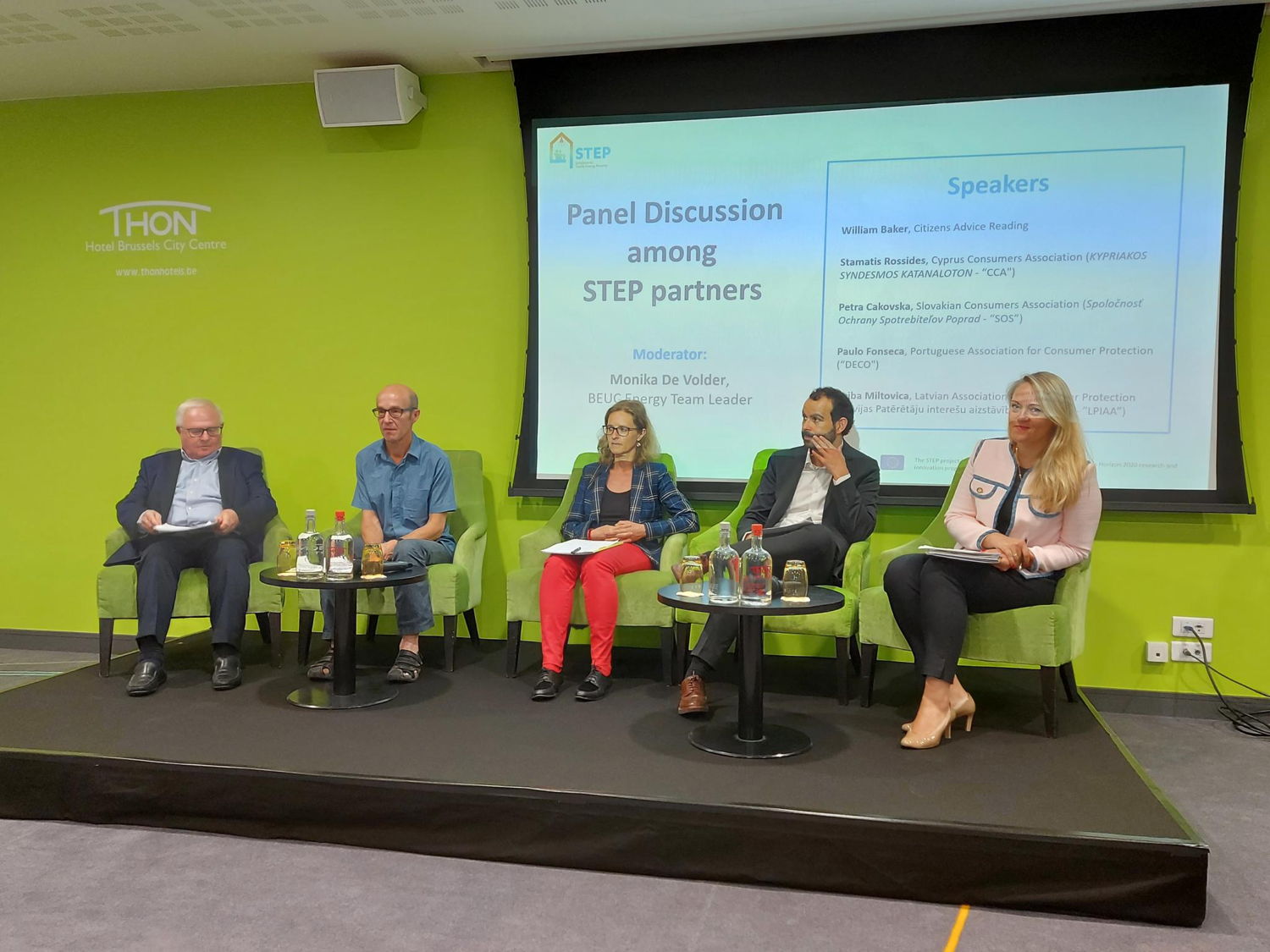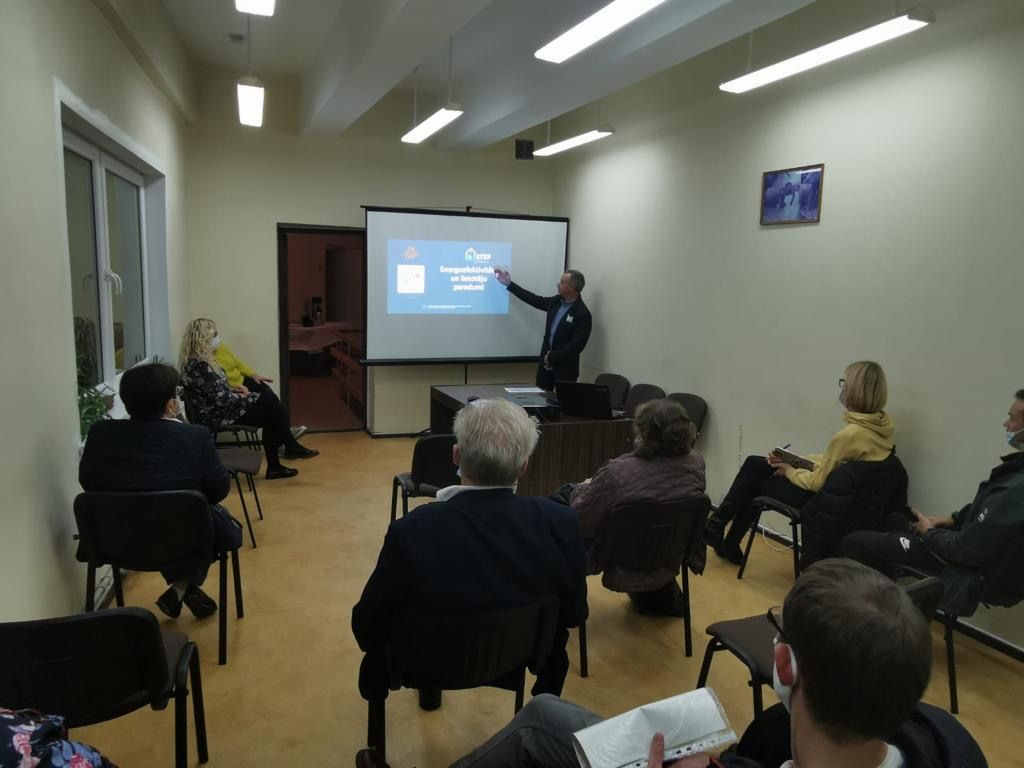Project team using social innovation to tackle energy poverty across Europe announced as a finalist in 2023 European Sustainable Energy Awards
Equipped with the latest behavioural science, this novel approach to outreach enables citizens to lift themselves out of energy poverty while advancing the energy transition.

‘Energy poverty can best be tackled through consumer awareness and behavioural change, empowering citizens to improve their situation,’ says Kęstutis Kupšys of the Lithuanian Consumers Alliance, one of 11 project partners.
Alongside societal benefits, the approach also has environmental impact. To date, this EU funded project resulted in 8 970 tonnes of CO2 savings, the equivalent of removing 2 000 gasoline-powered vehicles off the road.
Over three years, the consortium behind Solutions to Tackle Energy Poverty (STEP), worked in nine countries across Europe with the highest levels of energy poverty to advise consumers on low- or no-cost energy saving measures. They provided advice to over 16 000 consumers and ran over 150 workshops triggering energy savings of 38.4 GWh.
Partners worked with relevant organisations to reach consumers directly: ‘In Lithuania for example, we managed to reach half of all municipalities. We cooperated with frontline worker organisations such as the Lithuanian Social Workers Association to provide training and set up an energy hotline,’ according to Kęstutis.
This cooperation will have lasting impacts beyond the project scope. The organisations involved have become experts in energy efficiency and advice will continue to flow to consumers who need it.
‘It is very important for us to strengthen the competences of social workers and thanks to the training provided through STEP, we have put a team together who works with people in the community to improve energy efficiency and realise savings,’ explains Jūratė Tamašauskienė, President of the Lithuanian Social Workers Association.
Other innovative outreach tools included setting up ‘energy desks’ for guided support on renovation measures and to bring vulnerable consumers into contact with trained experts, helping to lower energy consumption and reduce bills. The project, which concluded in May 2022, produced many resources and best practices that can be easily replicated in other cities and countries.
Through the development of advocacy tools and policy recommendations, STEP also contributed to long-term government mechanisms that address energy poverty. ‘In Lithuania, we now have several schemes in place for consumers that are living in multi-family houses to access government funding for energy efficiency improvements,’ adds Kęstutis.
STEP ran across Bulgaria, Cyprus, Czech Republic, Latvia, Lithuania, Portugal, Slovakia, Poland, and United Kingdom. With approximately 8% of the EU population being affected by energy poverty, bringing about change in this area is an original and important way to advance energy goals.
The project is a success story for EU funding towards innovative projects tackling climate change. Improving household energy efficiency and addressing energy poverty directly supports the European Green Deal and REPowerEU Plan.
STEP is one of three finalists shortlisted for the European Sustainable Energy Awards 2023 in the Innovation category. The award recognises outstanding ongoing or recently completed EU-funded projects that show an original and innovative path towards the clean energy transition. The other finalists in this category are Alqueva Floating Solar Farm from Portugal and TrAM (Transport: Advanced and Modular) from Norway.
Alqueva Floating Solar Farm is a hybrid energy project bringing together solar energy, hydropower and battery storage. TrAM is behind the world’s first fully electric fast ferry with zero emissions.
Europe’s best clean energy projects and leaders celebrated in the EUSEW Awards
The European Sustainable Energy Awards (EUSEW Awards) recognise outstanding individuals and projects for their innovation and efforts in energy efficiency and renewables. Prizes will be awarded in three categories: Innovation, Local Energy Action, and Woman in Energy. Winners are announced during the EUSEW Awards Ceremony in June 2023 in the presence of European Commissioner for Energy Kadri Simson and a high-level jury.
The winners will be decided by an online public vote, which is open now until 11 June.
EUSEW 2023
The European Sustainable Energy Week (EUSEW), the biggest annual event dedicated to renewables and efficient energy use in Europe, takes place on 20 - 22 June under the theme 'Accelerating the clean energy transition – towards lower bills and greater skills'. The event will bring thousands of sustainability stakeholders together to explore policy topics related to protecting European consumers from price volatility and sharpening their skills to produce and save energy within the current energy context.
Registrations for onsite attendance in Brussels and online participation are now open.
For interview requests with the EUSEW Awards finalists or additional media information, please contact media@eusew.eu






